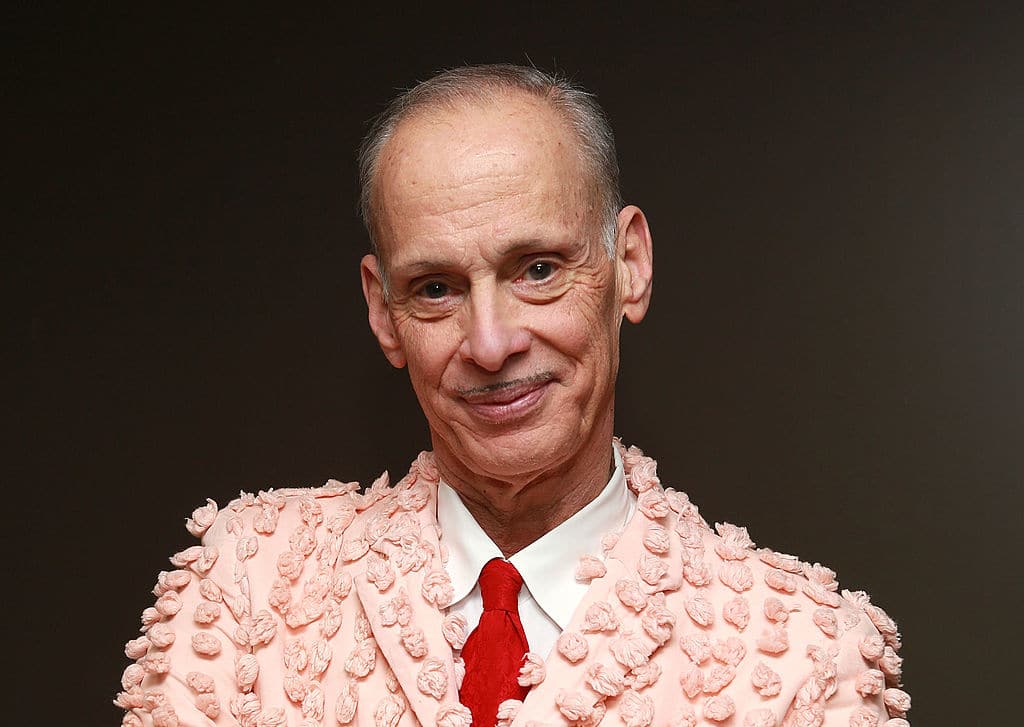John Waters in 2013. (Robin Marchant/Getty)
You would be forgiven for thinking that, by now, John Waters wouldn’t really care what people think of him.
Over the course of a long, illustrious career, Waters has directed cult classics such as Pink Flamingos and Female Trouble. He has also toured the world, written books, and he’s won admiration and admonishment – sometimes in equal measure.
You might think somebody like John Waters would be immune to criticism, but he’s not. In fact, he was actually pretty nervous about how the world would react to his debut novel Liarmouth.
“Yes, I was worried about it – are you kidding?!” John Waters tells PinkNews. “The day I sent it to my agent and my editor I thought, ‘What are they gonna think of this?’ The day it was going to come out, I had no idea what kind of reviews it was going to get – I had no idea how it would be received.
“So far I’ve been very pleasantly surprised. You just don’t know – I spent three years with this, but it could go either way. I loved it, but it doesn’t mean that others people will. I was very nervous. Probably more nervous than anything in a long time.”
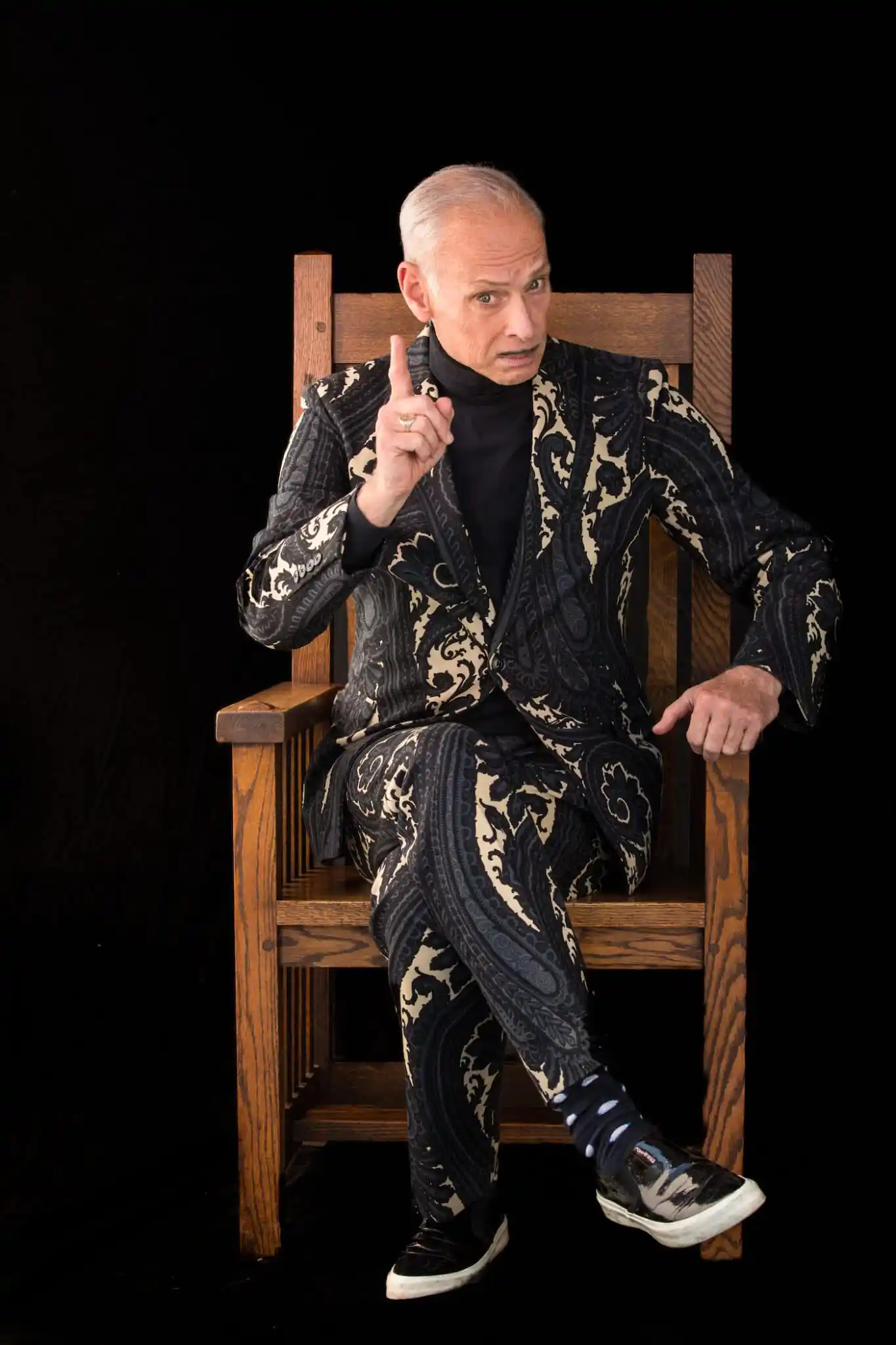
PinkNews caught up with John Waters to chat about talking penises, laughing at elitism in the art world, and why he thinks everyone takes themselves too seriously.
PinkNews: What was the inspiration behind Liarmouth? Where did the main character come from?
I wanted to write a woman that was a lead character that would be so terrible, but I still would try to write her in a way that the audience would like her and root for her even though in real life they would run away from her. That’s always a challenge, to make people that would be the villain in other people’s work the heroine in my work. I think I did that – Marsha does do terrible things but you kind of chuckle at her because she takes herself very seriously and thinks she’s perfect.
The novel is also full of sexual transgression, from talking penises to fetish, but it’s all rooted in parody. What were you trying to get across?
Well the sex writing in my books is always a parody of sex writing – I don’t think that many people are going to be jerking off reading Liarmouth. Well, you never know! Even the thing about “eargasms”, I still don’t know if that’s even true or if people actually do that. I liked the idea that someone said a really long time ago about sex, they said: “If you can even think of it somebody has done it.” Like the tickling community – I don’t get it, I really don’t get it – but I do find it kind of staggering that that would be so much of a niche sex act that you could only hang around with people [like you] and you’d have to decide if you were a tickle top or a tickle bottom, and do you come out as a tickler to your parents? I’m just trying to parody the limits of liberation.
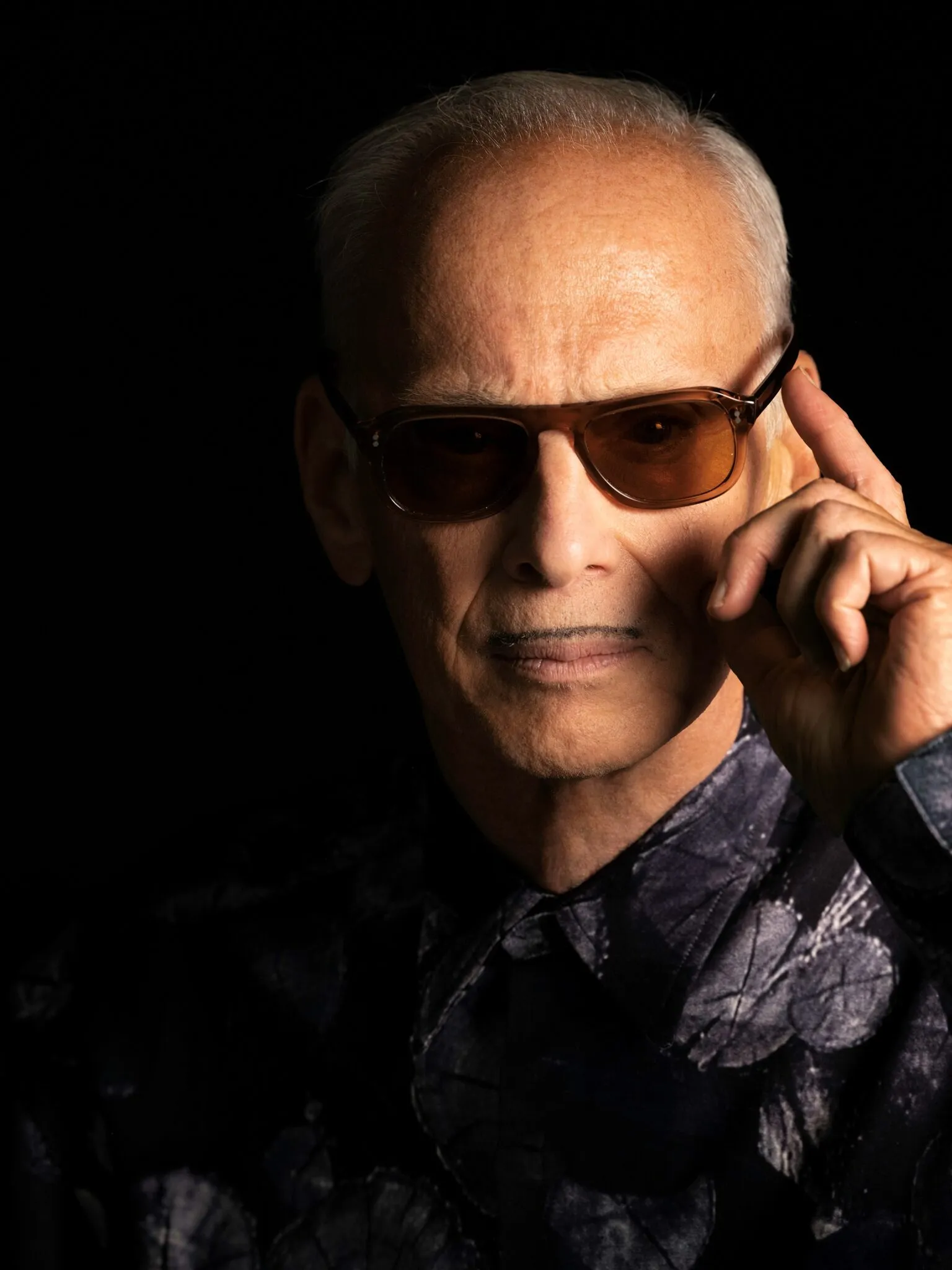
We have to talk about the fact that the novel also features a talking penis.
Richard was a straight penis at the beginning and then he turns gay which is even more awkward for a man who says he’s heterosexual, and his d**k is gay all of a sudden. So he was separated by the waist at the equator of sexual desire, but that isn’t bisexuality – that is a kind of bodily function war.
What was so fun about it is that it parodies how much we love labelling people, but it also parodies how much straight men are horrified by gay men. Was that your intention?
I could write it the other way with a gay man at the head and his dick turns straight, it would be the same humour. I could imagine writing it that way. I think it’s much funnier this way because the other way would be taken as being sexist. It’s interesting, the ridiculous positions you can take that makes it either sexually correct or incorrect as far as ideas are thought of intellectually these days.
It also feels in some ways like an old fashioned moral tale but it’s not entirely clear who we should route for.
I think it does have a moral tone to it in a way, and I’m thinking basically the right person does win. But what does her winning mean and what will happen after that? How will she handle her winning? I’m not sure if she learned any lessons which is something that in most movies, in the third act, the bad person has to do. She learned that she was right and she got what she wanted by being terrible, so it’s not the usual set up in a book. It has a surprise ending.
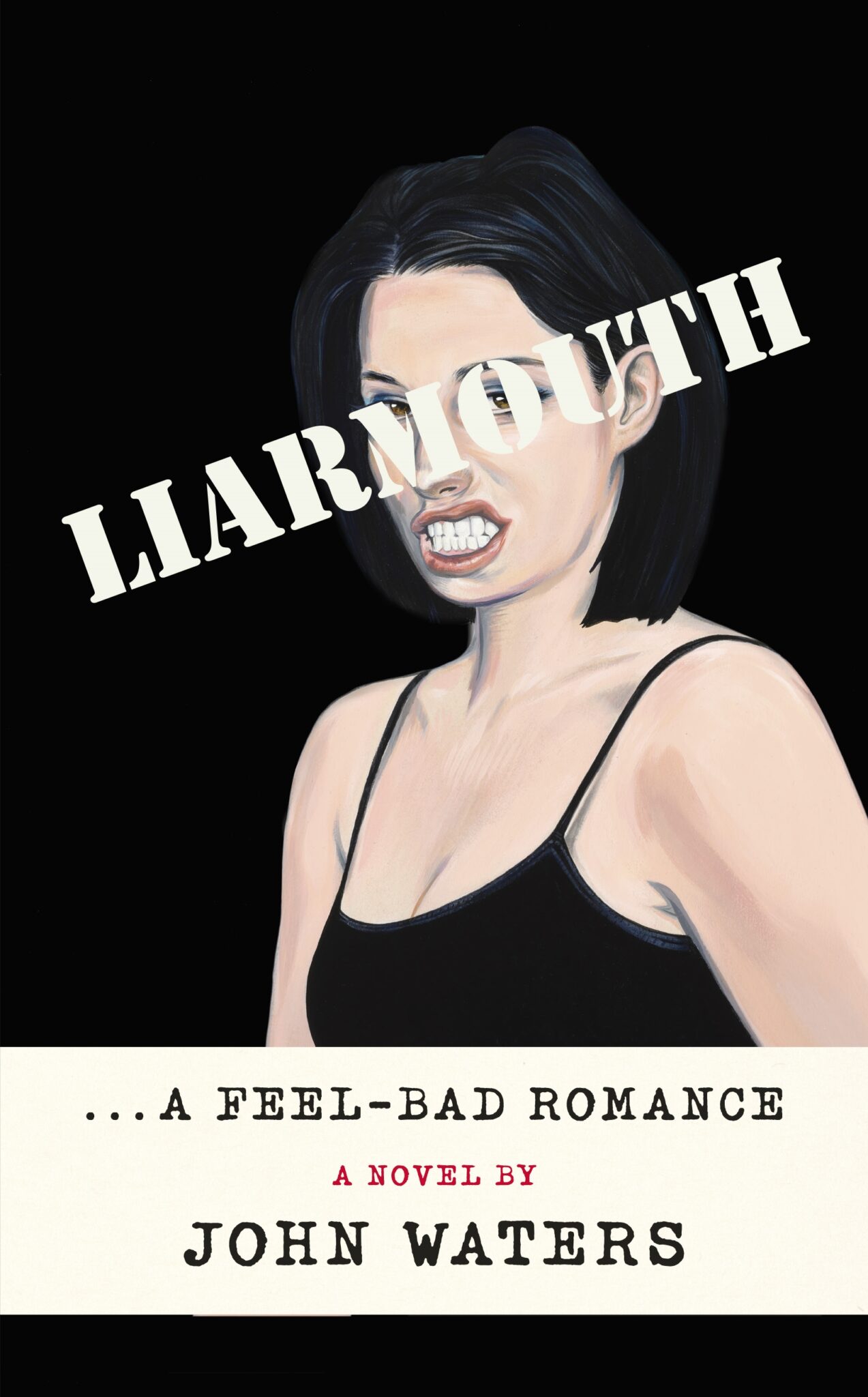
You told GQ that the book makes fun of society’s rules, and you mentioned wanting to run away from the art community’s rules. How have things changed in the art world since you started your career?
I always liked the elitism of the art world – I thought it was hilarious. I didn’t have any problems with that… To me in all worlds, there are rules. The rules that I make fun of are always the rules in the outsider world or an elitist world or some kind of world that I’m a member of. I am amazed at all the rules that this alternative society, whichever I’m talking about, has put up, which seems like even more than my parents had. I like to learn the rules so that you can break them with fashion and style no matter which world you’re living in, but this book makes fun of the rules of the world that so called outsider, alternative people live in.
The book is obviously really subversive but it’s also really funny. What’s the power of comedy and making people laugh while talking about bigger themes?
Comedy to me is the ultimate way to get somebody’s attention. Then they’ll listen, they’ll stop arguing and preaching and standing on their soapbox. If you can make them laugh, they’re stunned for a minute and then they’ll listen. So I think all humour is political, it’s aggressive, it’s how you fight and it’s how you win and it’s how you infiltrate and get what you believe in to the other side. That’s what I’ve always tried to do – make people not judge other people and try to imagine just how different everybody is, and how even people that are terrible, they weren’t born that way, something happened to them. It’s always trying to figure out, what happened to these people?
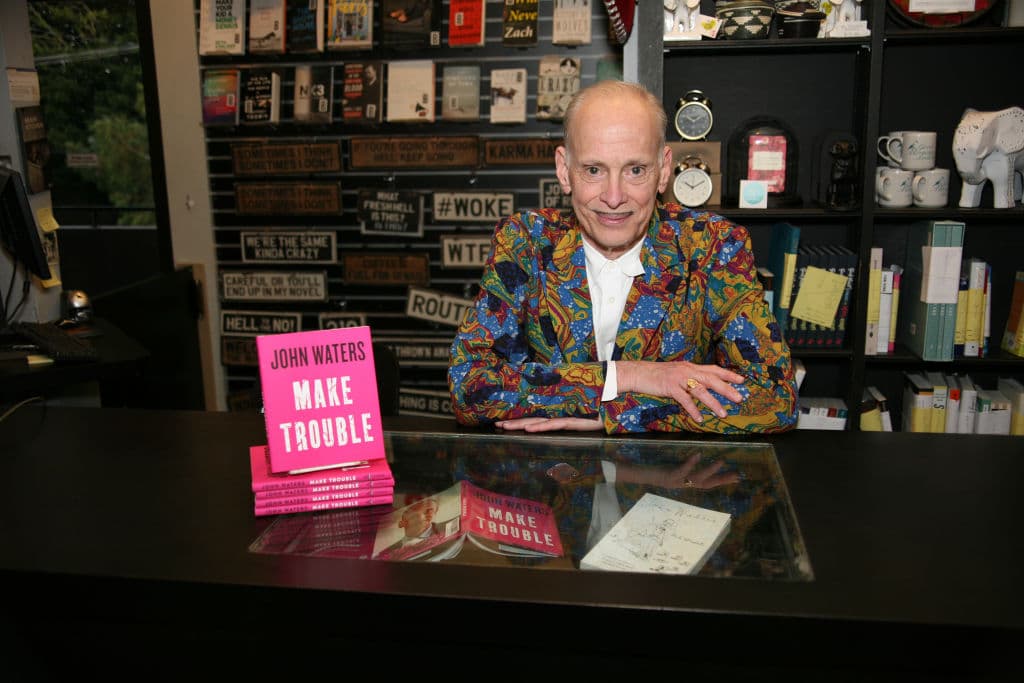
Could you ever see Liarmouth as a film? It feels very cinematic.
Well, I can’t help but think like movies. I’m always like, three acts, they win something, they lose something, they get it back. I grew up on movies, I think that way. This would definitely be a road movie – it takes place on the road, it’s a chase, it’s about crazy people all fighting one another. It goes from one character’s viewpoint to another. It is written like a movie, I just wanted to feel like I was sitting around telling you a story in my own words. A lot of words, a lot happens! Don’t blink.
This is also your first novel – what was it like delving into that form? How different was it to what you’ve done in the past?
It wasn’t that different, you just have to go do it – that’s the only thing. You could certainly go in to how people felt and you didn’t have to show everything, you could write about feelings in a much deeper way than you can with dialogue in a movie. But at the same time you didn’t have to worry about, is this a close-up, is this a wide-shot? That kind of thing – you just tell a story from inside every person’s mind. I think that way the audience will want to come along with you. They can put you in their bag and take them on a trip and go with you.
What would you say to the younger LGBTQ+ generation who might not be familiar with your work who could stumble across this book?
I guess if you’ve never seen any of my movies, this is a good way to start! But then you might want to go watch Hairspray or something afterwards and see the other end of what I do that isn’t maybe quite as threatening or quite as grotesquely humorous.
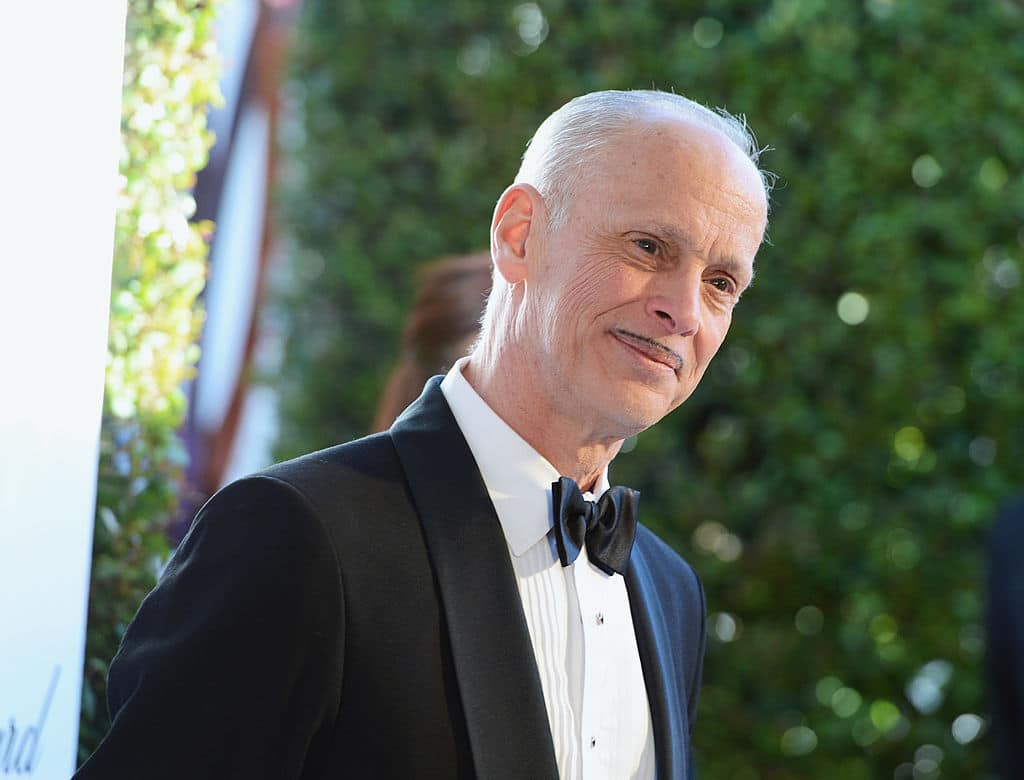
You have a show coming up at the Barbican in London in June – what can people expect?
Well, how much the world has changed, how much the virus has made everything different – fashion, TV, clothes, sex, love. It’s a 70-minute monologue, right up to date, it’s full of stuff I’ve written in the last six months and it’s all about the world that we’re living in today.
How has the pandemic been for you – how did you find your way through it?
It’s been like it was for everybody else – terrifying and boring, and what else in the world is terrifying and boring? A friend of mine said that to me and he was dead right. Nothing is terrifying and boring except this virus.
Yeah it’s been a bit of a rollercoaster, to say the least.
Well rollercoasters aren’t boring, the virus is. It just keeps on repeating itself with not a lot of style, just the same goddamn thing happening over and over again. For me it’s like Groundhog Day.
John Waters will be performing his show False Negative at the Barbican in London on 10 June at 7.30pm, with a second show taking place at 10pm.
